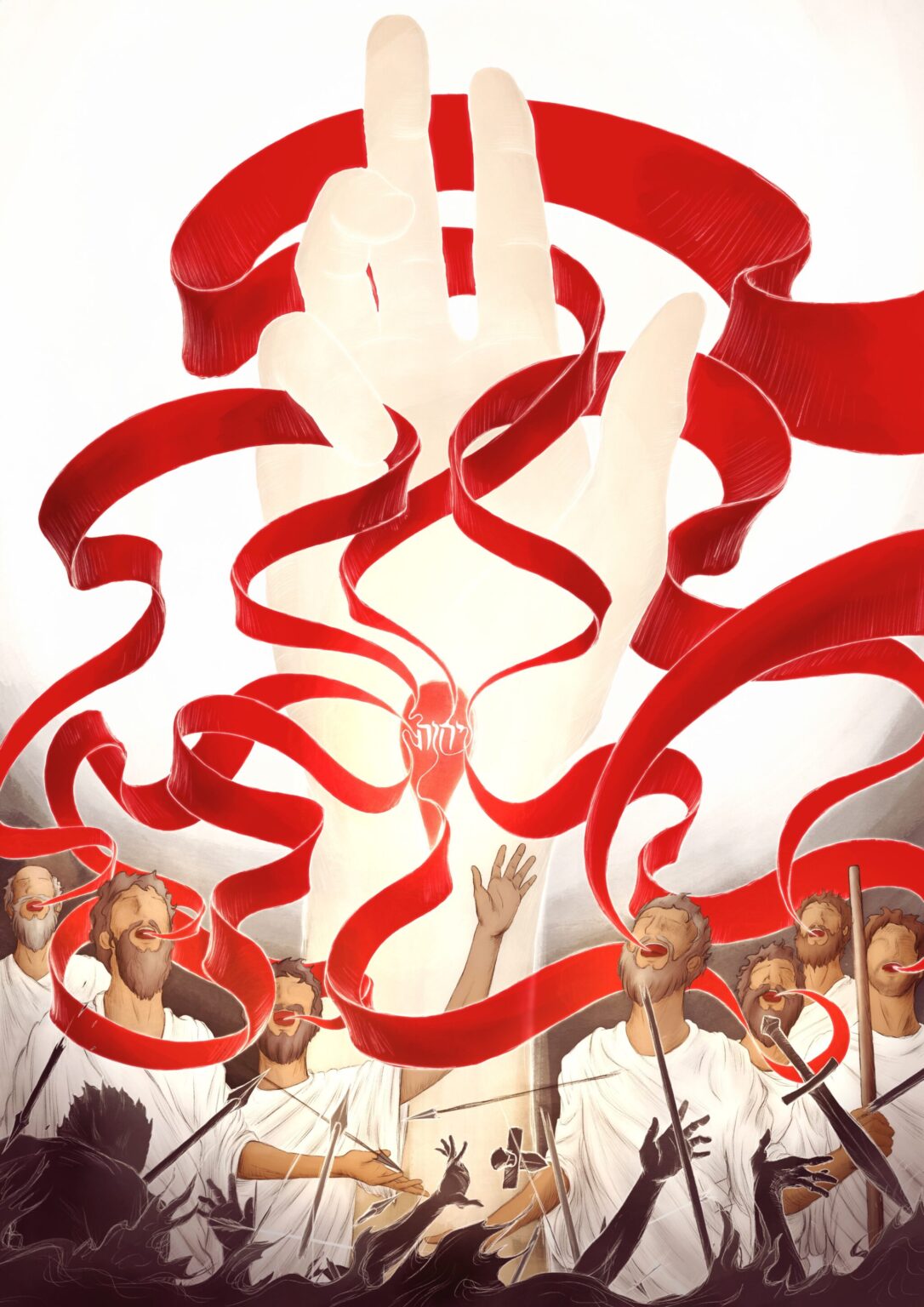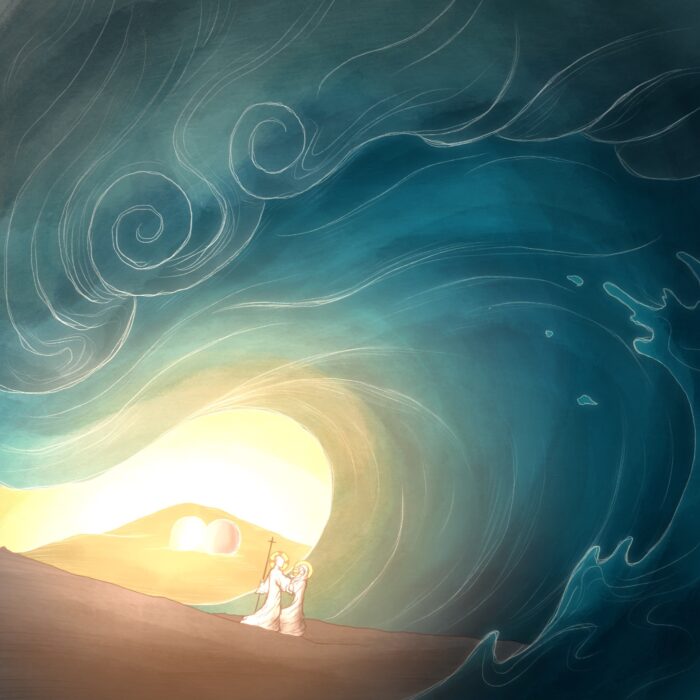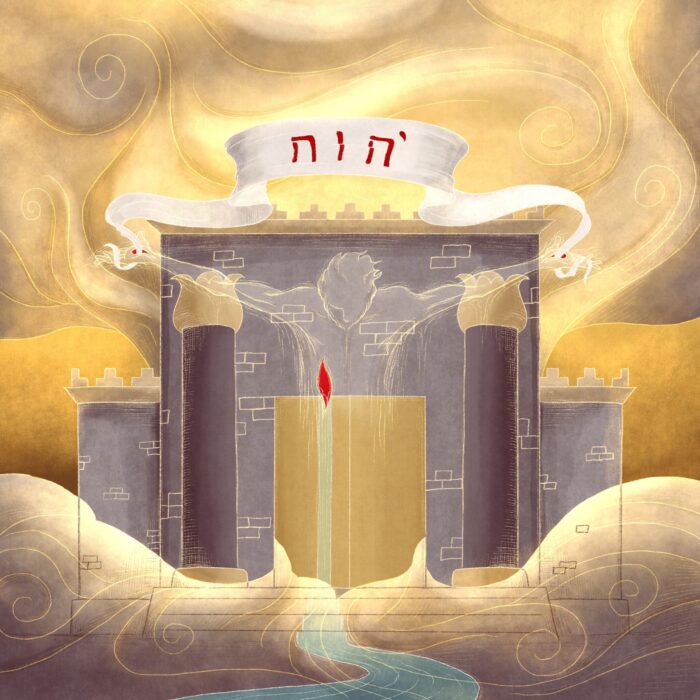2 Chronicles 20:21


And when he had taken counsel with the people, he appointed those who were to sing to the LORD and praise Him in holy attire, as they went before the army, and say, “Give thanks to the LORD for his steadfast love endures forever.
2 Chronicles 20:21 (ESV)
The Passage Explained
2 Chronicles 20:21ff is the joyful climax to a trial of faith that begins in 20:1.
In chapter 19, Jehoshaphat called the nation back to YHWH, and in chapter 20–as if to test the resolve of this newfound commitment–the Moabites and Ammonites descend on the little kingdom of Judah. Mercifully, the weight of this fear drives Jehoshaphat to YHWH rather than away from Him, and the king humbles himself before his God, crying out in a quintessential expression of desperate and hope-filled faith, “We are powerless against this great horde that is coming against us. We do not know what to do, but our eyes are on you” (20:12).
YHWH hears the king’s prayer and responds through a prophecy, “Do not be afraid and do not be dismayed at this great horde, for the battle is not yours but God’s” (20:15). The battle belongs to YHWH–how Jehoshaphat’s heart must have been strengthened with those words! And yet–as always–faith yields works. The battle belongs to God, but the people–led by Jehoshaphat–still must act, they still have to “go out against them” (v.17). So, working in grace-given faith, the king rises early and goes to face the “great horde” rallied against him.
And how does Jehoshaphat enter into this battle? By faith and song. In verse 20 we see the king rally his people, not on the basis of strength or numbers or honor, but on the basis of YHWH Himself: “Believe in the LORD your God, and you will be established believe his prophets and you will succeed.” Having called Judah to faith in YHWH, they enact this faith in song.
“And when he had taken counsel with the people, he appointed those who were to sing to the LORD and praise Him in holy attire, as they went before the army, and say, ‘Give thanks to the LORD for his steadfast love endures forever.'”
Three quick things to note here. First, the singers lead the army, this is a tangible expression of Jehoshaphat’s faith in the word of the Lord; “the battle is not [his] but God’s.” Second, the singers are giving thanks to the Lord even before the battle begins, again another awesome expression of faith in the God who graciously makes and keeps promises. Third–and most importantly–note the content of their song: it is praise to YHWH for His steadfast love (i.e., covenant faithfulness) that endures forever. Their confidence, their hope, and their lives are all founded on the person of the God of Israel, on His proven character, on His identity as revealed through the history of redemption, on His “steadfast love”–a love that always comes to the aid of desperate covenant partners, for their joy and His glory.
Judah is confident that YHWH will be for them who He has proven Himself to be through past covenant faithfulness. Who God Is–YHWH Himself–is the foundation of Jehoshaphat’s hope, and the declaration of confidence in His name leads Judah into battle. And the Lord does not fail His people, “when they began to sing and praise, the LORD set an ambush against the men of Ammon, Moab, and Mount Seir…so that they were routed” (20:22).
The Picture Explained
In this picture the singers of Judah are shown without weapons in order to highlight the role of faith in the victory. As discussed above, the theme of Judah’s song is the steadfast (covenant keeping) love of YHWH for His people. With this in mind I represented the songs as crimson banners that unite to form the Hebrew letters of God’s covenant name. The banners are crimson because the climactic expression of YHWH’s steadfast love comes when every command and every promise of every covenant is fulfilled in the outpoured blood and victorious resurrection of the Son. The name of YHWH is at the center of the songs because throughout scripture His redemptive work of covenant keeping love makes His name (character, identity, glory) known to His people, and the name is inside the wound of Christ because nowhere is this more true than on Calvary.
The songs of Judah weave around the wounded right hand of the Son because their theme is the covenant-keeping love of the Lord and, as mentioned, it is the crucified and risen Son who supremely communicates the Lord’s steadfast love–and, indeed, the Lord Himself–to creation. The wounded hand is also central because it will ultimately be through the cross that every enemy of God and of His people will be overcome (Colossians 1:20, 2:15; Revelation 5:5-6 etc.). Thus the shattering of Moab et al before the song of the Lord’s steadfast love is something of a foreshadowing of the day when the true Moab, Satan himself, will be shattered under the bruised heal of the Son–while blood-bought saints sing for wonder.


